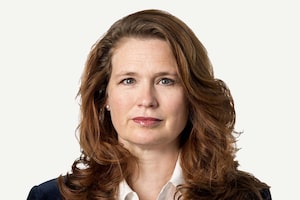Good morning. It’s James Keller in Calgary.
Alberta’s United Conservative Party had a leadership election this week because two years of the COVID-19 pandemic and a perceived lack of progress addressing grievances with Ottawa threatened to tear the UCP apart.
Much of the blame was laid at the feet of Premier Jason Kenney, who announced his resignation after winning a bare majority of support in a leadership review in May – an embarrassing result that, he conceded, made it impossible to carry on.
UCP members elected a new leader on Thursday in Danielle Smith, who expects to be sworn in as premier on Tuesday. Ms. Smith, a former leader of the Wildrose Party who worked for years as a talk-radio host, won with a campaign that attempted to speak directly to those who felt aggrieved by Mr. Kenney. She railed against COVID-19 restrictions and vaccine mandates while laying out a scorched-earth strategy to take on the federal government.
But after all that, it’s not clear that the United Conservatives are any less divided.
The leadership campaign was driven in large part by Ms. Smith’s proposed sovereignty act, which she claims would give the province the ability to ignore federal laws the legislature considers unconstitutional. Mr. Kenney called it “cockamamie” and a “de facto” plan for separation. Leadership rival Brian Jean, also a former Wildrose leader, accused her of spinning a legal fantasy that she could not deliver on. Another candidate, former finance minister Travis Toews, said the proposal would ensure an NDP victory in next year’s provincial election.
The bruising and at times bitter leadership campaign culminated in a close race that required six ballots, under the party’s preferential-voting system, to crown Ms. Smith the winner. She secured 54-per-cent support – barely more than Mr. Kenney did in his leadership review. And even Ms. Smith acknowledges that she has work to do to ease concerns within her caucus, particularly on the sovereignty act.
Ms. Smith held a caucus meeting on Friday in which the UCP leader and her leadership competitors insisted they were united, or at least working to get there. Ms. Smith has scheduled a caucus retreat in Sylvan Lake later this month, where she said she will give her MLAs a “full briefing” on the proposed sovereignty act as she attempts to allay their concerns.
Some of her fellow leadership candidates expressed an openness to at least consider the bill, once they’ve had a chance to see it. And while Mr. Toews, who placed second to Ms. Smith, wouldn’t say whether he would run again, third-place Mr. Jean said he planned to stick around to focus on “those things that bring us together.”
The Globe’s Kelly Cryderman writes that Ms. Smith must now do more than appeal to the narrow slice of supporters who were drawn in by her anti-government, anti-lockdown, and vaccine-skeptic campaign if she has any hope of winning the next provincial election in the spring.
And, Kelly writes, there are already signs that she intends to find that broader appeal, using her victory speech on Thursday to talk not only about vaccines and Prime Minister Justin Trudeau (although they were in there, too), but also affordability and inflation. She appeared to borrow from recently elected federal Conservative Leader Pierre Poilievre as she blamed the federal government for high inflation while recounting the stories of people struggling to make ends meet.
But even that sort of pivot, writes Kelly, carries risk.
“Now that she has won the leadership race, Ms. Smith must achieve a fine balance. If she is seen as backing down from the sovereignty act or wavering in her commitment against lockdowns, she will quickly face the ire of key supporters. She could someday end up in the same spot as Mr. Kenney.”
For all the focus on the sovereignty act and COVID-19, other issues did make their way into the leadership campaign, such as health care – an area that Ms. Smith and others singled out for sweeping reform.
Ms. Smith also put forward policies that will affect Alberta’s oil and gas sector. Energy reporter Emma Graney writes that Ms. Smith supports emissions-reduction goals and has said clean technology will help reduce emissions. While she supports net-zero goals within the industry, she doesn’t plan for the province to set its own targets. And she plans to launch another legal challenge against the federal government over the carbon tax.
For more on Danielle Smith’s victory and what it means, read our explainer about the incoming premier and her policies.
This is the weekly Western Canada newsletter written by B.C. Editor Wendy Cox and Alberta Bureau Chief James Keller. If you’re reading this on the web, or it was forwarded to you from someone else, you can sign up for it and all Globe newsletters here.
 Wendy Cox
Wendy Cox James Keller
James Keller